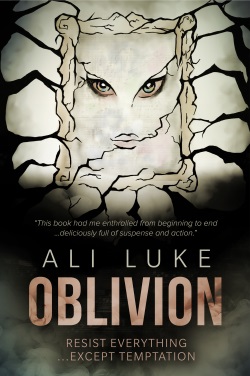One of the key challenges in writing Lycopolis was how to represent the game world within the novel.
The game isn’t just a plot device: it’s also a way in which I explore the nature of storytelling and imagination. I wanted to convey something of the feeling of taking part in a roleplaying game, and I also wanted the game sections to feel at least somewhat “real†– as though the in-game characters had lives of their own too.
Before I get into how I wrote the in-game sections and why, I’ll try to clear up one issue that LycoRogue (and probably other readers) had on the game mechanics:
The main issue I have is that the character Seth is the world creator and apparently the only storyteller of the game. How can he be everywhere at once and available whenever people want to be on? How does the game progress a story without him? How was Kay able to do an activity in-game without him? How would it be programmed in?
Seth, being Seth, is pretty controlling of the story. Anything really major that happens is planned by him (quite probably with help from Kay and others – that’s why in the opening scene of Lycopolis, he’s trying to pressure Kay into her help with the demon-summoning roleplay). But the more peripheral aspects of the story are player-led; Tristram’s interaction with his squire, Benedict, for instance, doesn’t need Seth’s involvement.
Writing the In-Game Parts of Lycopolis
The main difficulty I had is that the game is entirely text-based. (For the geeks out there, it’s a MUD, with a heavy focus on roleplay rather than hack-and-slash.)
I was really keen on this, because I don’t think graphical roleplaying games have anything like the same immersive power … but it caused a lot of initial confusion with my workshop group, most of whom weren’t gamers or internetty types, and assumed that “game†= “graphicalâ€.
I didn’t want to relay the game story like a MUD log file – line after line of text, transcribed as it would actually take place – because I know from my own gaming days that these are a lot more fun to take part in, in real time, than to read afterwards.
So I went for a straightforward narrative style, telling the in-game story just as I tell the regular story, from a third-person limited pespective. This is from the first chapter of Lycopolis:
“I have deep misgivings about this.†Sir Tristram strode over to where Lord Cyrric stood, in the doorway leading down to the Temple of Shadows.
“I don’t care.†Cyrric leant towards him, the city’s insignia glinting from the medal around his neck. “All I care about, Tristram, is your loyalty.â€
There were footsteps on the road, slowing, then halting. A lantern pierced the gloom, illuminating a pale face and blonde hair. “Lord Cyrric. Sir Tristram.â€
Tristram frowned. “Miss Heidi. Are you sure you wish to be here?â€
“Of course.†She glanced at Lord Cyrric, and Tristram saw her wait for his nod before continuing. “I will not be participating, merely observing.â€
She should not see such things. No-one should.
There were louder footsteps now, accompanied by a jangling of metal, then a whooping battle-cry. Matilda. She came over, dragging a chained slave girl no older than Tristram’s squire.
“Stay and join us,†Cyrric said, to Matilda.
Tristram hoped she’d refuse. Matilda was a law unto herself – along with the sprawl of streets that she ruled over. She shrugged. “Why not?â€
The parts I’ve put in bold are ones that are explicitly from Tristram’s viewpoint. The other players wouldn’t necessarily have any idea of what he’s thinking (though it does influence how he behaves – so Kay needs to know). I realise this may well be confusing to readers who are expecting the game to be more of a log of events, rather than the interpretation of the gameplay through a player’s eyes.
The line in bold italics indicates that the scene is through Tristram’s perspective (and thus Kay’s).
The line in bold underlined italics is Tristram’s (Kay’s) observation – it’s a comparison that others could easily have made, but probably wouldn’t.
I did this deliberately. (Well, mostly. It’s always hard to be sure after the fact how much was deliberate and how much just happened to get written that way…) The in-game scenes don’t just show the action, they show what a character’s player is adding to this in their own imagination (e.g. Tristram’s hope that Matilda will refuse Cyrric’s invitation).
There are other ways I could written the in-game scenes, of course. Very early on in the drafting, I tried merging in-game and out-of-game (so that you saw people’s thoughts as they played) – it quickly became obvious that this wasn’t going to work too well.
I could have written the game narrative from an omniscient, rather than a limited third-person, perspective – and while that might have resolved some of the objections that readers have had, it would have given the book a different flavour.
If you’ve read Lycopolis, I’d love to hear what you thought about the in-game scenes. Did they work for you? Were you distracted by trying to work out what the stories equated to in terms of what each player was typing, or did that not bother you?
 This has been four years in the making, so let’s get to it:
This has been four years in the making, so let’s get to it: If you’ve not got your copy of Lycopolis yet, it’s available from Amazon.com and Amazon.co.uk in both paperback and ebook formats:
If you’ve not got your copy of Lycopolis yet, it’s available from Amazon.com and Amazon.co.uk in both paperback and ebook formats: